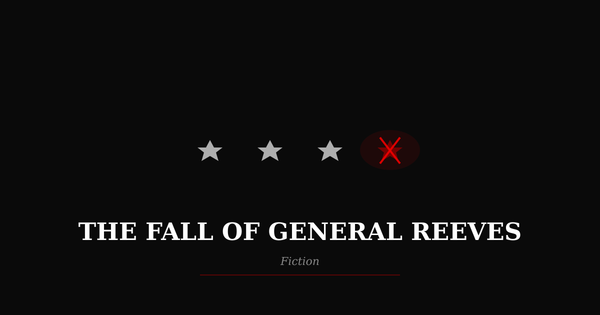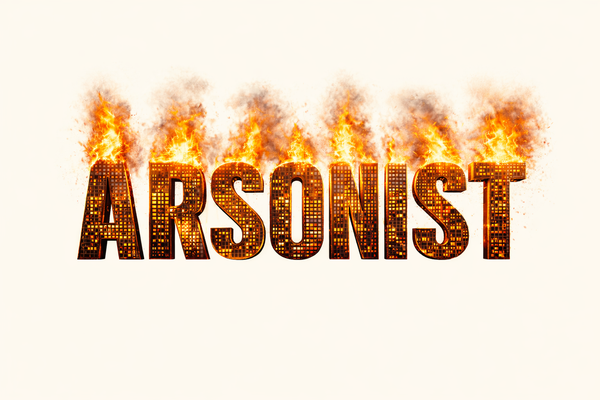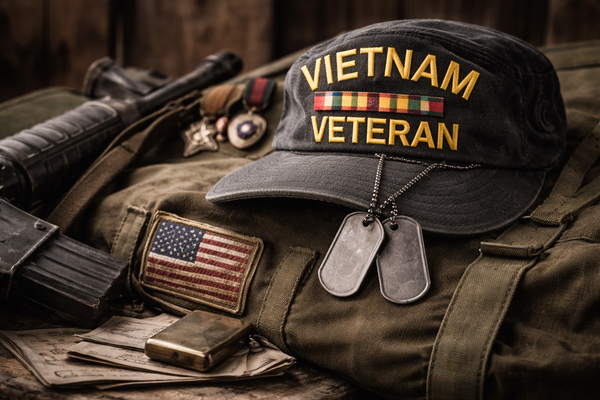The Happy Losers
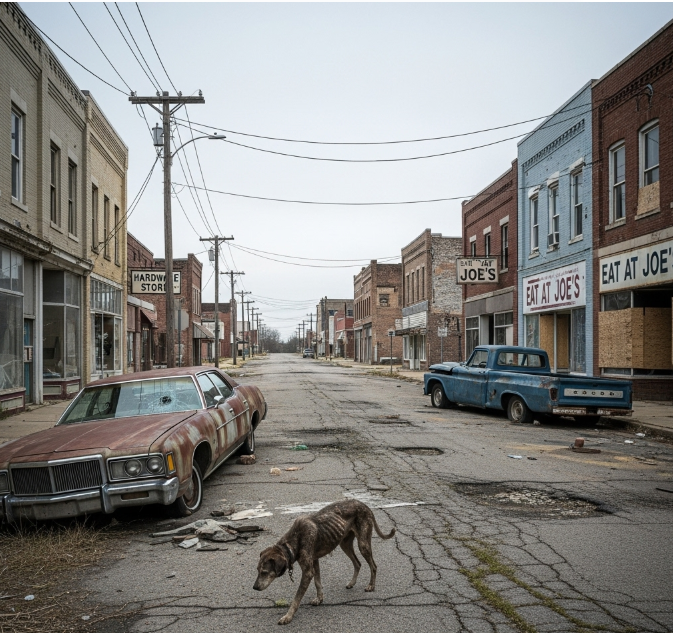
They're not unhappy. They're ecstatic. They won. They elected a man who shits in a golden toilet to fight for the working class. If that's not dark comedy, I don't know what is.
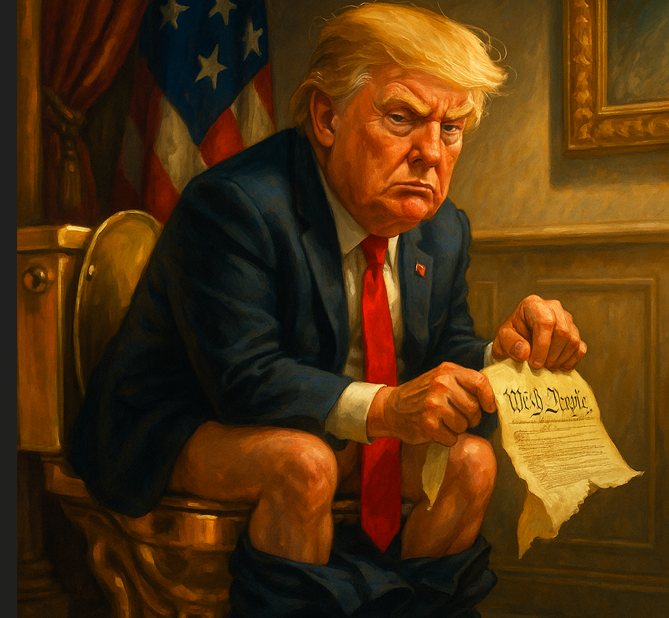
I'm in a nice bar full of friendly people (they assume I belong to their cult) in a desert town fifty miles west of Flagstaff—population 467, where the high desert meets delusion. The bartender's got more ink than a newspaper and less money than the change in my couch. Three jobs. Lives in a trailer in grandma's backyard. Voted for the billionaire who's going to save her from the elites.
Her boyfriend's drinking beer and playing pool at 2 PM on a Tuesday. "I do some of this, some of that," he tells me. "I'll attack pretty much anything." Never worked enough quarters to qualify for unemployment, but the disability checks from that motorcycle accident back in '09 keeps the lights on. Well, that and the SNAP benefits he thinks should be eliminated. Funny how personal catastrophe becomes public policy—I can't work, therefore work requirements for everyone else.
The Last of the Wild Wild West
This place peaked when Billy the Kid was still breathing. Now it's "the last place where the government doesn't control you." That's what they tell me, these 467 souls who'd starve without the postal service delivering their federal checks.
Nothing grows here except resentment. The land's too dry for farming, too remote for industry, perfect for forgetting. Three veterans at the bar, comparing VA disability percentages like baseball stats. 60% for the back. 30% for the knees. 100% certain that their government healthcare isn't socialism because they wore a uniform once.
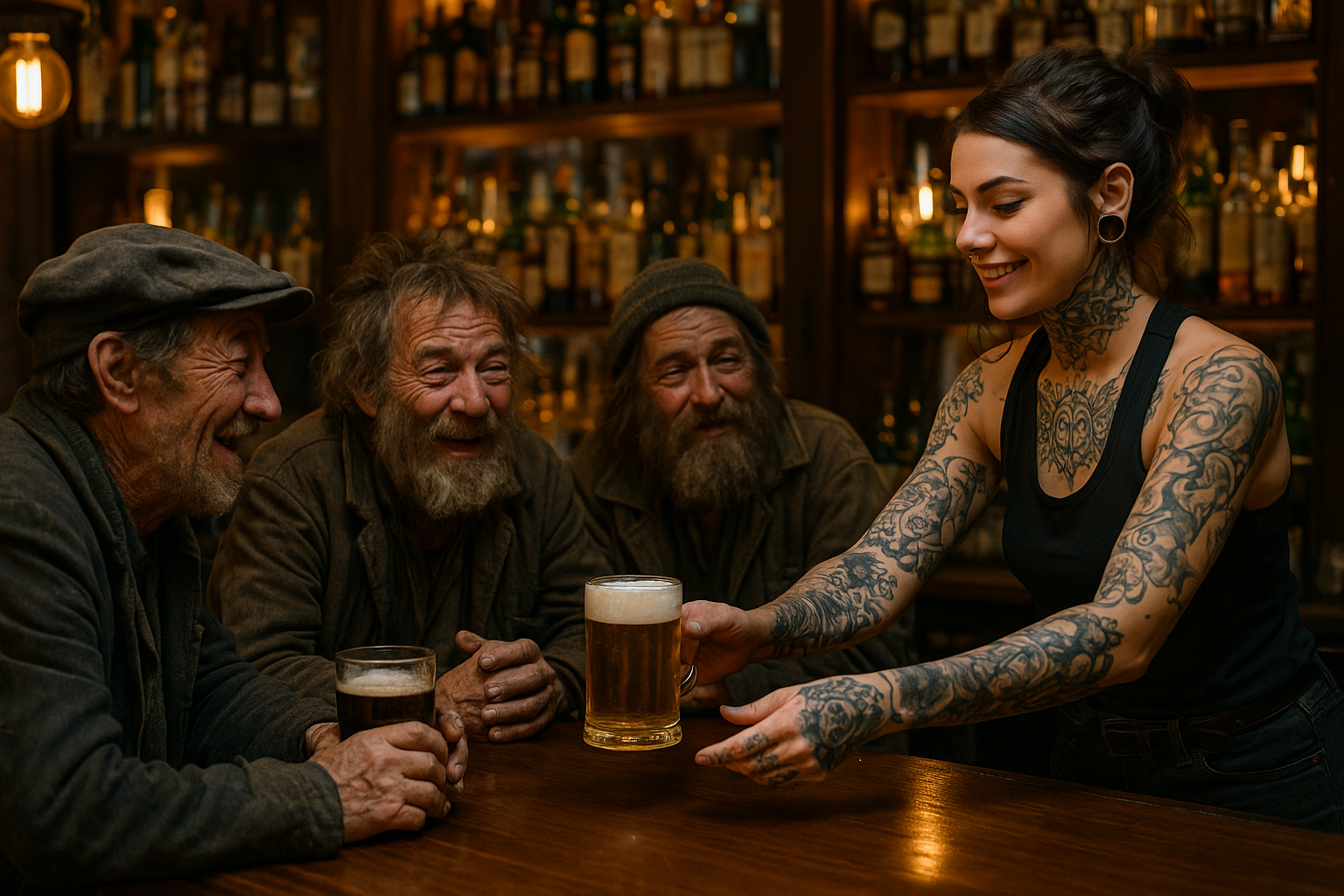
"Those welfare queens in Phoenix," one mutters into his beer, which he bought with money the government sends him for a training injury from 1983. "Living off the system."
The irony's so thick you could mine it, if there were any jobs here. Which there aren't. Haven't been since the copper played out and the interstate bypassed them, and the world moved on without asking permission.
Due Process is for People Like Us
"Why should they get lawyers?" the fellow next to me asks about immigrants. His face has that particular shade of red that comes from blood pressure medication and righteous indignation.
I ask if he's ever gotten a speeding ticket. He has. I ask if he got to contest it in court. Of course he did.
"That's different," he says. "I'm an American citizen."
The Constitution's apparently a club membership, not a founding principle.
He leans in, breath sweet with beer and bitterness. "Just load 'em up. Ship 'em back. No questions."
"What if they grab the wrong person?"
"They know what they're doing."
The same government he worries will not deliver mail—his checks, though those always arrive—he trusts to determine citizenship by sight. Beautiful.
The bartender's listening, nodding. Her great-grandparents came from Mexico, but that was different. They came the right way—walking across an imaginary line when it was just an imaginary line, not a political statement. Now she's as American as anyone, which is to say, she's terrified of becoming what she already is: the child of immigrants in a nation that's forgotten it's made of them.
"The Supreme Court says everyone on U.S. soil gets constitutional protections," I mention, casually.
"That's the problem," red-face says. "Activist judges."
The Constitution's apparently a club membership for white men, not a founding principle.
The Money Launderer's Crusade
In 2015, trump was fined $10 million for money laundering. Not allegedly. Not accused. Fined. Convicted. The man literally washed mob money through casino chips. But mention that here and watch the gymnastics begin. It's fake news until it's smart business until it's everyone does it until it's the deep state until it's another beer please.
The man who married his way through the Soviet bloc—acquiring wives like real estate, upgrading when the maintenance got too expensive—now crusades against chain migration. Melania imported her parents, her sister, the whole Ljubljana phone book practically. But that's different. That's family reunification. When they do it, it's chain migration. The jokes write themselves, but nobody here's laughing. They're too busy nodding along to the idea that immigration was better when their ancestors did it. You know, back when the only requirement was surviving the boat ride.
The Comfortable Anger
"You know what burns me?" Red-face continues, though nobody asked. "They come here, get everything free. Healthcare. Education. Food stamps. Housing."
He's describing his own life with perfect accuracy and zero self-awareness. VA healthcare. GI Bill. Disability. Section 8 voucher for his apartment two towns over. But that's different. He earned that by existing in the right uniform at the right time.
The woman next to him, drowning in medical debt despite being on Medicaid—she votes against Medicaid expansion. "I don't want government healthcare," she says, unironically, while the government pays for her insulin. The disconnect isn't just complete; it's sublime. It's art. It's America.
"They're destroying this country," she adds, meaning the immigrants, not the pharmaceutical companies charging her $500 for medicine that costs $5 to make.
Everyone nods along. The slow, synchronized agreement of people who've found their explanation for everything.
The Last Toast
It's two in the afternoon. The bar fills up, no place else to go. A few young people working three jobs, the older crowd living on pensions and VA benefits. The bar itself is lovely, well-kept by the owner—the only such building in town. He's retired military, on pension and disability. Deserves the disability too, had a truck fall on his ankle at Fort Hood. I respect that. I support the military. But he'll tell you government programs are killing America while cashing checks from three different federal agencies.
"No lawyers!" red-face declares to the choir. "No judges! No appeals!"
The heads bob in unison. Everyone agrees. Due process is apparently negotiable, depending on who needs it.
There's that old poem about how they came for the socialists, and I did not speak out. Then they came for the trade unionists, and I did not speak out. Then they came for the Jews, and I did not speak out. Then they came for me—and there was no one left to speak.
But that's history. Ancient history. Nothing to do with now. Nothing to do with here. We're different. We're Americans. We know who belongs and who doesn't. We can tell.
The machinery of enforcement, once built, tends to stay hungry. But nobody here thinks about that. They're certain it will only ever eat the people it's supposed to eat. The right people. The other people. Never them.
They raise their beers—purchased with military pensions, disability payments, and Social Security—to toast their freedom from government tyranny. The contradiction doesn't even occur to them anymore. It's background noise, like the hum of the broken air conditioner or the sound of the American dream flatling.
That's the darkest joke: they're not victims. They're volunteers. They know the leopard eats faces. They just think it's gotten too picky about which faces. Make Leopards Great Again.
In this bar, in this town that cartographers forget to include, they've won everything they wanted. They get to watch someone else lose harder than they have. That's enough. That's plenty. That's america with a lowercase a, because even proper nouns have gotten too expensive.
Lanying thinks I should find common ground. "Compliment their shoes or something," she says. But what do you say to someone who's setting their own house on fire to spite the neighbors? "Nice matches"?
The money launderer is president. Due process is a luxury. The Constitution is a suggestion. And everyone in this bar is content.
But hey, at least the beer's cold and the pool tables not warped.
That's something.


